Sign up for Funding Circle newsletter!
Get our latest news and information on business finance, management and growth.
Updated: March 27th, 2020
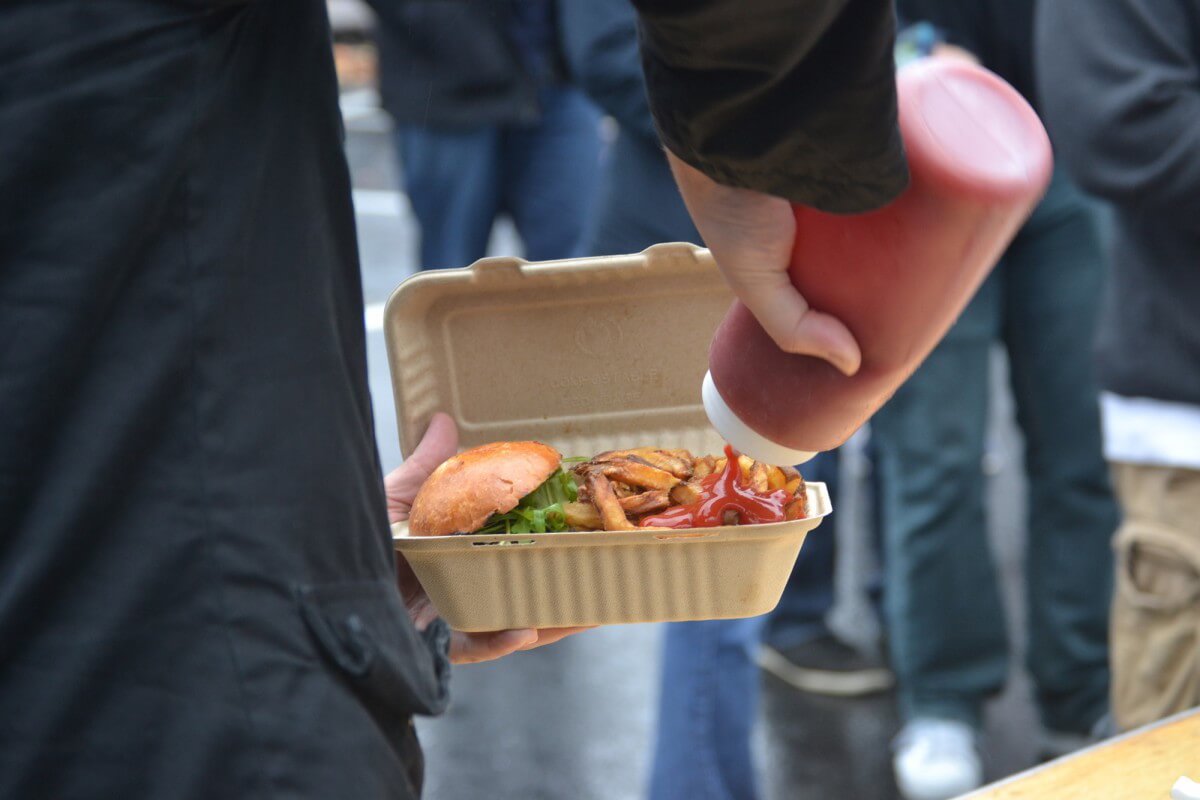
Your food is selling like hotcakes, but your ambitions have outgrown your mobile operation. How do you know if it’s the right time to expand your food truck business? How do you make the leap to brick and mortar?
We interviewed successful entrepreneurs in five major cities who started up with a food truck. Despite living across state lines and having unique stories to tell, they had startlingly similar advice. Find your own flavor of success as you follow these tried-and-true methods for expanding your food truck business into a full-scale restaurant.
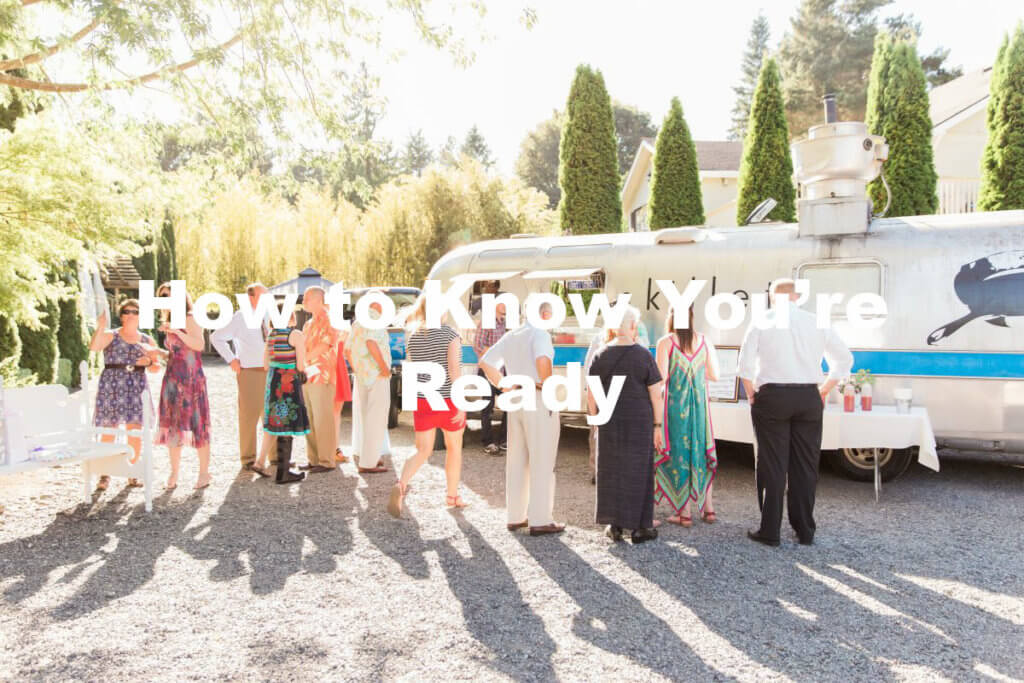
“It’s great that a food truck can go anywhere. But at the end of the day, the truck rolls away.” – Josh Henderson, founder of Skillet
It takes more than a hunch to know that you’re ready to take the plunge into owning your own establishment. Your customers, finances and history will keep you honest.
“We knew we needed our own location when we were consistently running out of time and space in our commissary kitchen to execute our regular lunch services plus special events.” – Mei, Mei Mei
The biggest sign that you should consider thinking about going brick and mortar is demand. When you start finding that “people crave your food/drinks/experience at all hours of the day,” as Verde’s customers did, you’re likely able to develop the loyal base of repeat customers you’ll need to sustain a more expensive operation.
“We really used the early years to market our brand and perfect our food. It’s important to get your name out there and attract a loyal following. Invest in a website and a nice wrap for your vehicle. The biggest benefit to starting in a food truck is the marketing opportunity. A food truck is a giant roving billboard. It allows you to become well-known.” – Eric Silverstein, The Peached Tortilla
If you’ve already been treating your food truck business as a brand-building machine, you’ll be well positioned to expand into a restaurant. Brand awareness goes hand-in-hand with demand. Once you’re well known for a specific product or personality, and have a devoted following, the word about a new space will travel quickly. Loyal customers and curious tasters will be eager to visit your brick and mortar location.
“If a food truck wants to think bigger, expand into catering. If you can successfully cater bigger parties and groups, or if you have two trucks and at capacity, then you’re ready for the next steps.” – Ani Pendergast, The Skillet Group
None of the food entrepreneurs we talked to leapt straight from selling food on the street in a single truck to opening a restaurant. Each built a profitable food truck business model in a unique way, testing out new ways of expanding before jumping into brick and mortar.
If you have an itch to expand but haven’t bought your truck, developed a second truck, or tried catering and pop-ups, don’t rush into restauranteering. Practice your business and management skills by expanding in smaller ways first.
“Your personnel is really key. Have you built up a foundation of employees that can help take you to the next level? Do you feel comfortable with your current staff?… If you don’t have help to run your business, it becomes challenging to survive.” – Eric Silverstein, The Peached Tortilla
A food truck business doesn’t require a huge staff to be successful. But that small staff should be of the highest quality and should be ready to make the leap right alongside you. A trustworthy staff will support you and make the transition to managing a lot more moving parts much easier.
“How do you know if you’re ready for brick and mortar? On a personal level: Ambition, tenacity, the stomach to take a risk.” – Amir Hosseini, Curry Up Now
Behind all great rewards is a great risk. When it comes to brick and mortar, there’s no silver bullet, no guarantee of success. Are you ready to invest months of your life and hundreds of thousands of dollars into this business? Many of the entrepreneurs we spoke to took time to talk to restaurant owners and get feedback and advice before jumping into brick and mortar. It’s important that you as the owner are comfortable with and fully aware of the risks and requirements involved. Read to charge ahead? Read on.
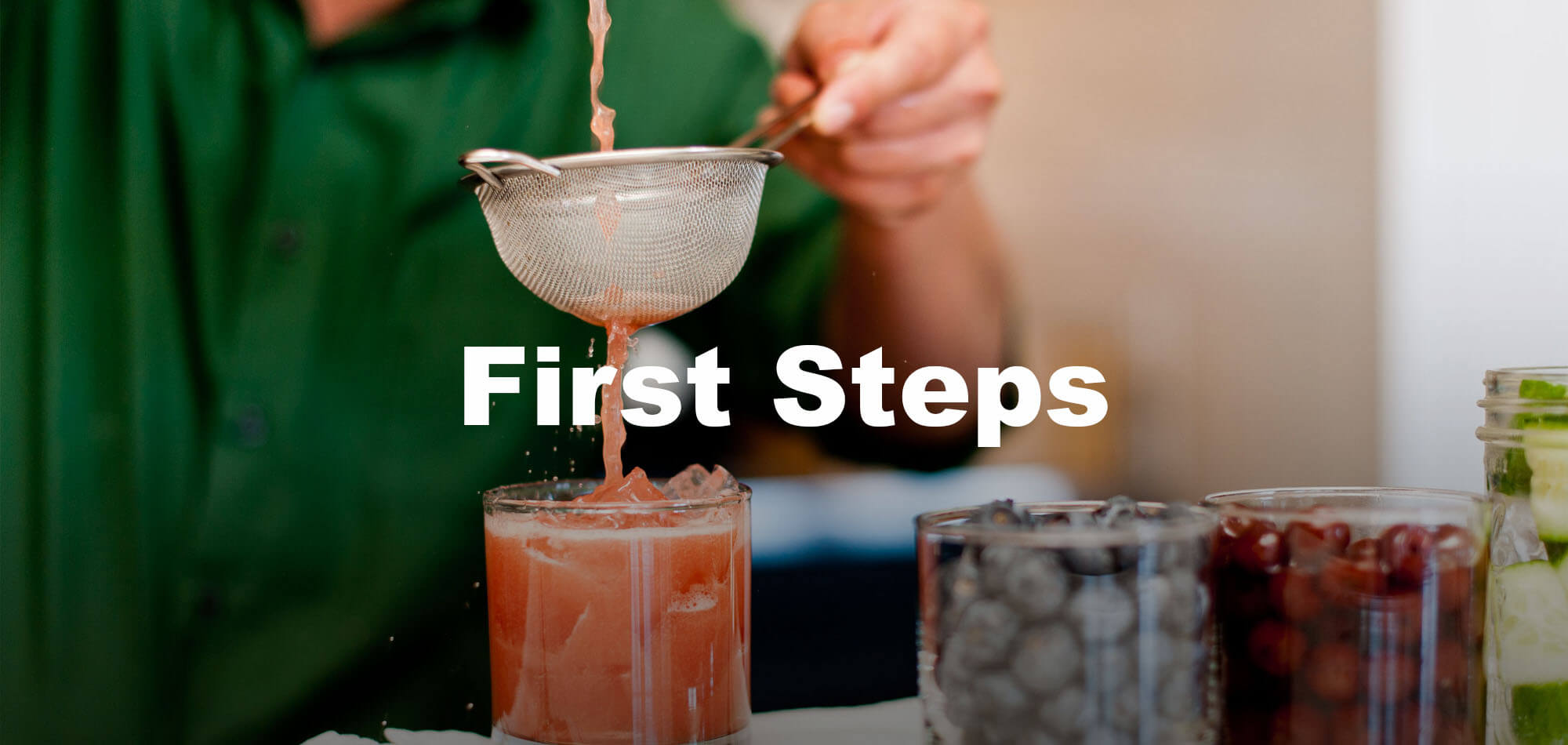
“You need to set up the business. It is a completely separate establishment from the truck… Everything will change with a brick and mortar.” – Brandon Miller, Verde
Every business owner we talked to agreed: your brand and menu might not change much, but virtually everything else will. The first steps to transitioning from a food truck business to a brick and mortar location are the same steps any new restaurant owner must take.
“There are just so many things to think about when you open a brick and mortar. The key is to do your homework. Run through your checklists of everything and anything you need to survive. You will inevitably miss something, but it’s important to make lists—and stay on top of them.” – Eric Silverstein, The Peached Tortilla
A business plan is the first step in getting serious about expanding your food truck business to brick and mortar. It’s the key to wrapping your mind around the new concept, from operations to marketing. Not only will it help you be more realistic about your finances, but it’ll come in handy when you’re seeking much-needed capital from lenders, investors, or new partners. You should also get into the habit of financial forecasting, as well as performing a cash flow analysis on a regular basis (ideally, once a month).
Your brick and mortar location will need different licenses than your food truck business. The process for getting approved can be tedious. Start early, so that by the time the new restaurant is scheduled to open, everything is ready to go. Make sure to find out what licenses your city requires, and if you plan on serving alcohol, don’t forget your liquor license (you can find some tips on the process here).
“Having the capital readily available allows you to make the big decisions when needed.” – Amir Hosseini, Curry Up Now
If you don’t think you’ll need a lot of extra capital to go into brick and mortar, think again! The average startup cost for a restaurant is $498,888 (according to a RestaurantOwner.com survey). Most restaurant owners seek partners to share the risk and burden with. You can also find lenders who provide restaurant loans to fund part of your startup cost. However you get it, make sure you have access to more than enough capital to start your expansion right.
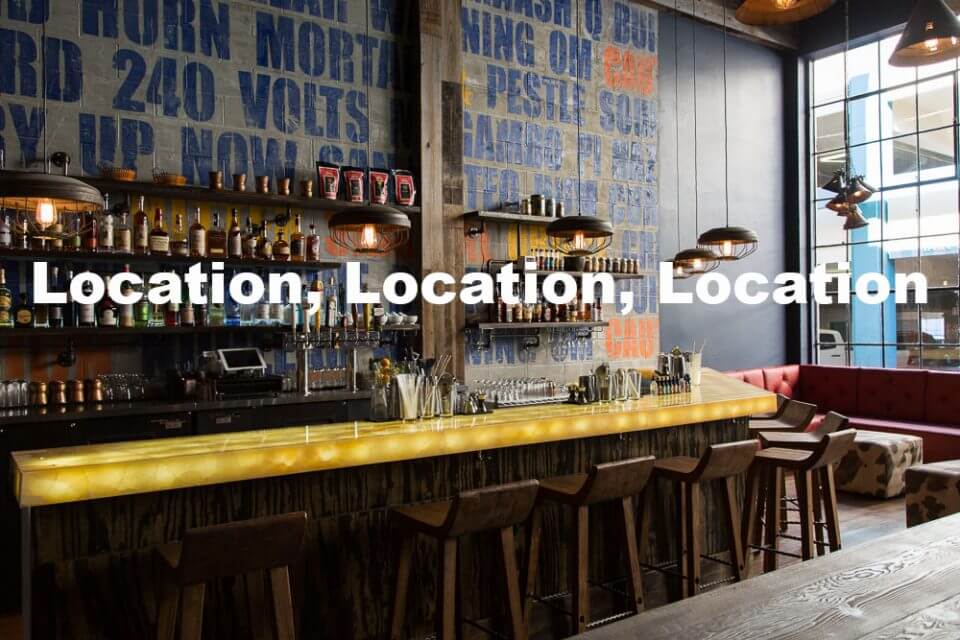
“It’s easy to let rent drown your business. You need a place that’s going to be affordable in the long term.” – Ani Pendergast, The Skillet Group
The biggest question to ask yourself when looking for the ideal location: Is it safely within my business budget? If you’ve never run a brick and mortar location before, it’s easy to underestimate the burden of overhead costs.
A good real estate broker will understand your requirements and help you find the right property. They will of course help you navigate the legal process of renting out a space and may even have referrals for a contractor and architect for the next phase of your project! That being said, make sure to do your own homework before signing any commercial lease.
“We’re not going to a place where our fans aren’t going to drive to…but we’re not in the middle of those places.” – Ani Pendergast, The Skillet Group
The first step to choosing a location is knowing your customers well. Where do they hang out? Naturally, the center of the most popular hotspots are going to be beyond your budget. But the vacancy a few blocks away, or the next neighborhood over, might not be.
“Don’t just jump into a lease or purchase a space because the opportunity has arisen. Take your time to verify that all of the numbers work for you… You never know when the right opportunity may find its way into your lap.” – Amir Hosseini, Curry Up Now
The entrepreneurs we interviewed consistently gave this advice. Once the idea strikes you, and you have the capital in hand, it’s hard to resist jumping on the next building that comes on the market in your ideal area. Take it slow and do due diligence. Talk to your real estate agent, your accountant, and your partners. Make sure you can live with your choice for the next ten years (or more).
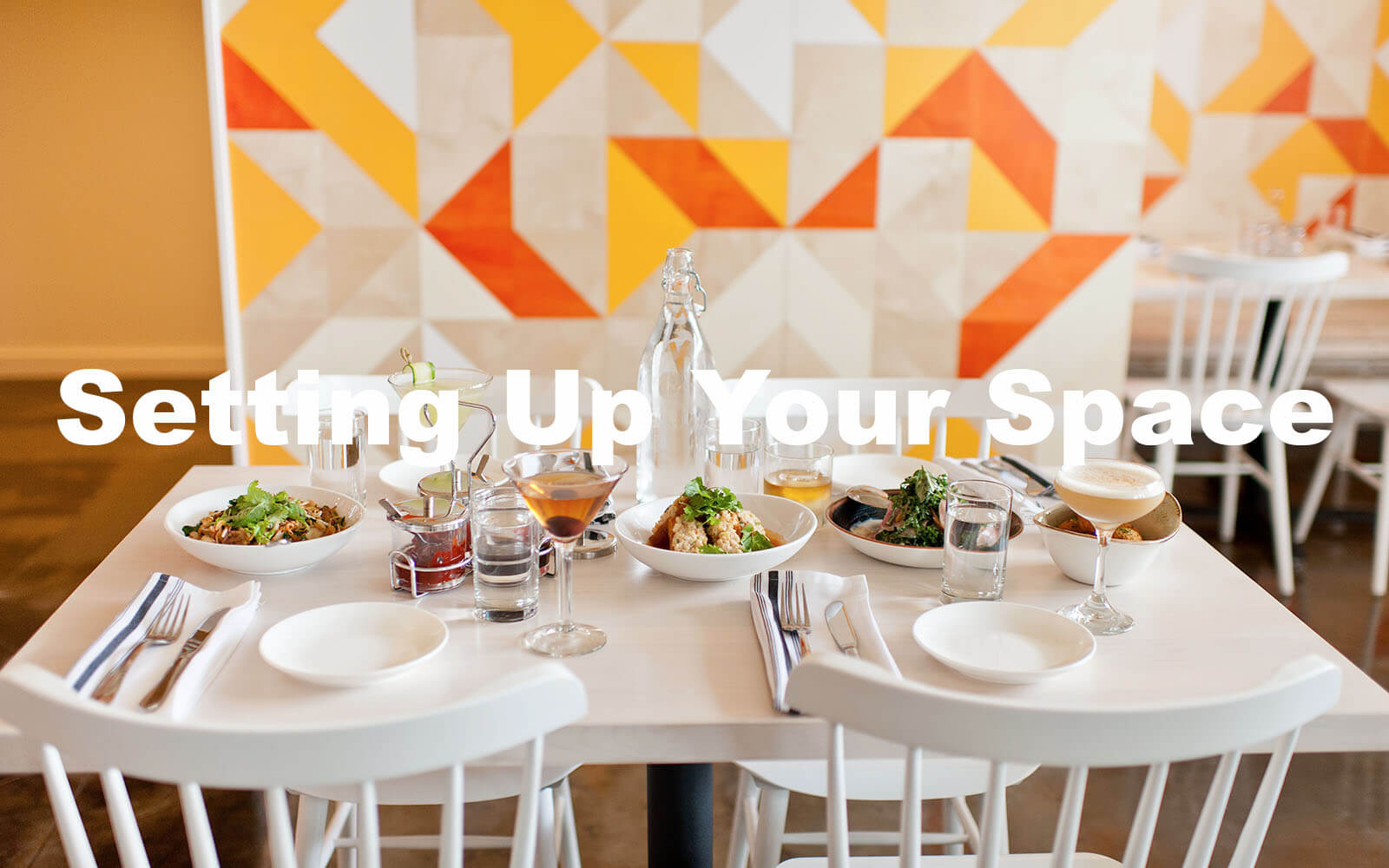
“Having the right team with you is a must.” – Amir Hosseini, Curry Up Now
Once you find a location, the transition to brick and mortar ownership has officially begun. Building out your space is the first test of your ability to delegate on a large scale. You’ll need to rely heavily on an architect, contractor, partners, and employees from here on—all while learning how to manage brand new tools and processes.
Naturally, your first step will be to find an architect. Don’t skimp on this step! A good architect is a great asset to your business. They may also have recommendations for a good contractor. You’ll be relying on these professionals to execute your vision and make your dream a reality. Keep in mind that the building you choose will limit some possibilities and open up others.
“Point of sale system is huge.” – Amir Hosseini, Curry Up Now
Goodbye, Square and Shopkeep. Hello, advanced restaurant point of sale system you’ve never heard of. Your business’ POS will become a vital part of your establishment. Think of it as the business’ capillary system. The entrepreneurs we interviewed called it “absolutely necessary”—even the major difference between food trucks and restaurants.
A POS does much more than track your revenue; it will also help you track labor and your product mix, giving you important data for the health of your business. Keep in mind that a POS company may need to hardwire data lines before you install drywall. It’s important to think about your POS system early and integrate it into your planning.
“There were a lot of things we had to learn. We had to write out a manual for our server sequence. We had to figure out timing on tickets and timing on running food and drinks. It was a process to pick out plateware, glassware, flatware and furniture…” – Eric Silverstein, The Peached Tortilla
Crafting the physical space is only half the battle of opening up your new restaurant. You’ll also need to get restaurant insurance, install security systems, and figure out the flow of all the activities that are going to take place in your building. Be prepared for challenges, roadblocks, and a whole lot of learning opportunities!
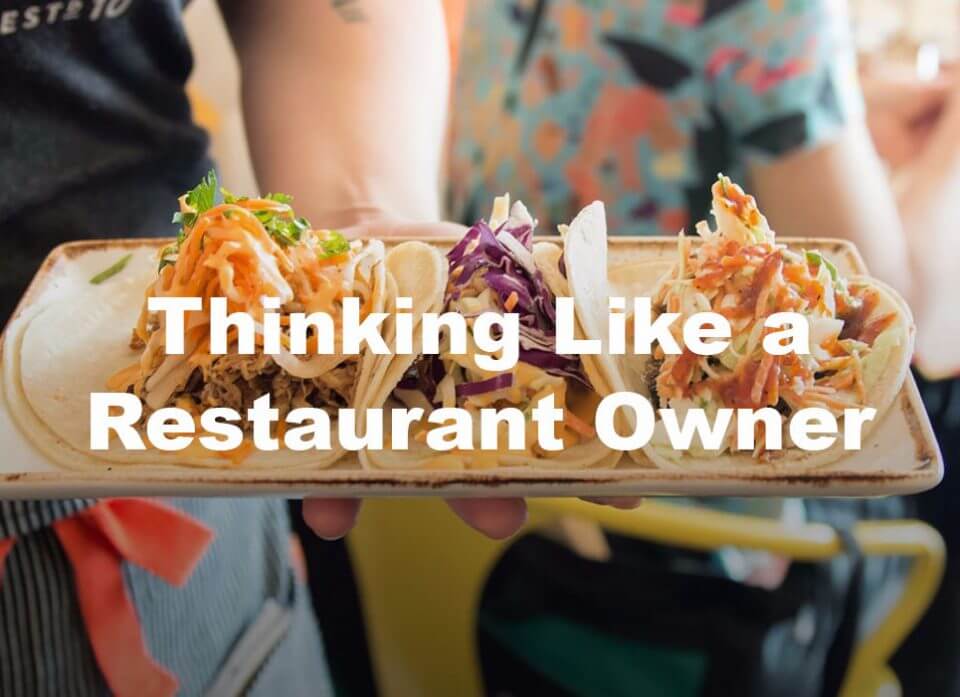
“Restaurants are a different animal.” – Eric Silverstein, The Peached Tortilla
An elaborate POS system is only the tip of the iceberg. Owning a brick and mortar business doesn’t just take more capital, manpower, or technology. It takes a different kind of mentality. You’ll need to delegate freely, thrive under pressure, and keep up with constant change and growth.
“To help run the restaurant, you will need at a minimum a General Manager, Assistant Manager, Bar Manager (if you have a bar), plus an Executive Chef and Sous Chef.” – Eric Silverstein, The Peached Tortilla
If you’re used to keeping tight control over your production or basically running solo, it might be difficult to adjust to sharing leadership with others. Pick your managers and chefs well and give them appropriate freedom and responsibility. Hopefully these employees will take ownership over their role of the business and contribute to its long-term success. Make sure that you have both the systems and the culture in place to help your managers and other employees succeed.
“Expect your guests to hold you to a higher standard… Don’t get comfortable. Stay creative and stay true to your culture. That’s what got you to this point.” – Amir Hosseini, Curry Up Now
Don’t take your customers’ loyalty for granted. You have to adapt the experience you offered via your food truck business to the more stringent requirements of a brick and mortar restaurant. Curious new customers will quickly become disgruntled ex-customers if you’re lax on service or quality. You will get a reputation immediately through word of mouth, press, and social media. Let the new pressure fuel your drive for excellence!
“We’ve opened four restaurants and keep learning new things every time. If there’s a formula for opening a perfect restaurant, I want to know it!” – Ani Pendergast, The Skillet Group
Every food truck entrepreneur who successfully made the jump into brick and mortar emphasized flexibility, humility, and grit. Some relied heavily on the advice of experienced restaurant owners before even creating a business plan; others learned everything along the way. Each ran up against roadblocks, found creative solutions, and married their passion for food with a practical attitude toward finances. Are you ready to join them?

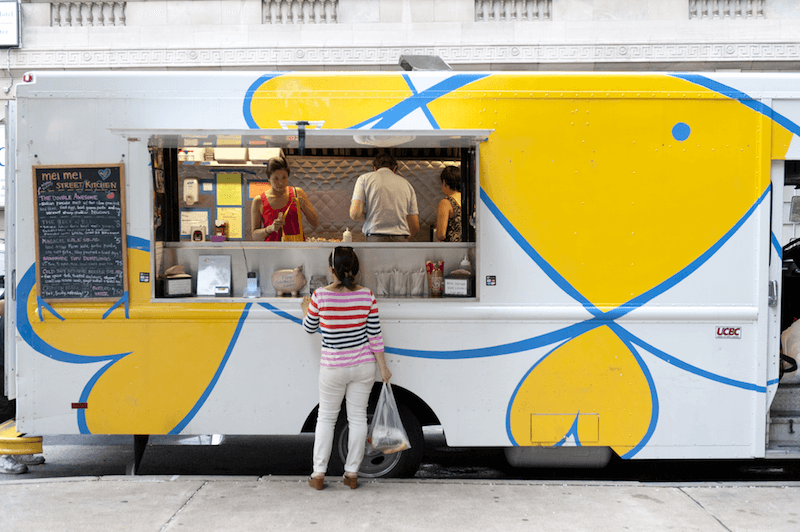
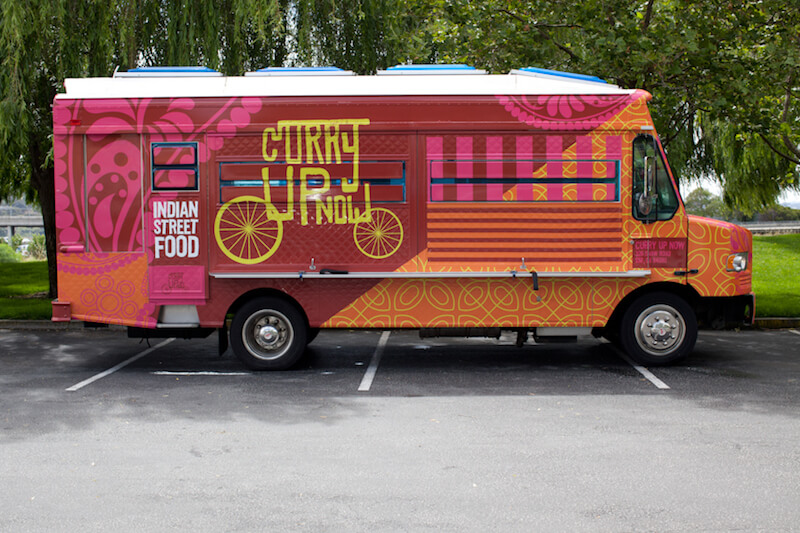
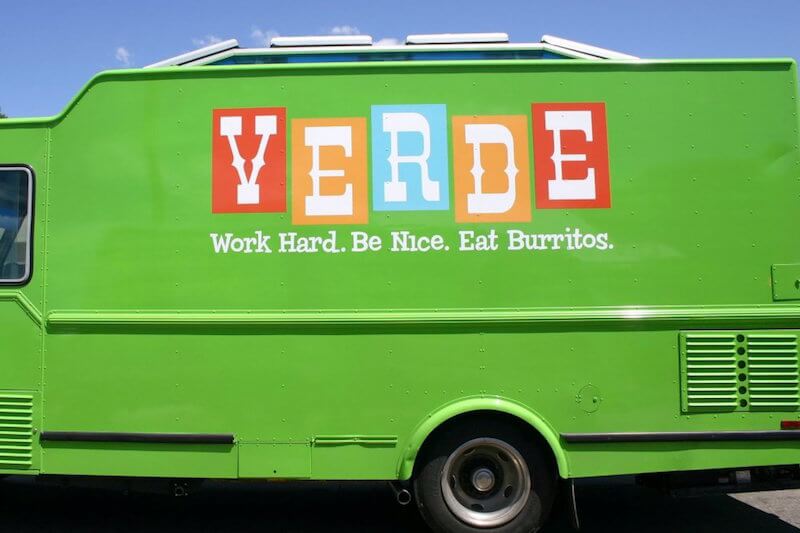

Samantha Novick is a senior editor at Funding Circle, specializing in small business financing. She has a bachelor's degree from the Gallatin School of Individualized Study at New York University. Prior to Funding Circle, Samantha was a community manager at Marcus by Goldman Sachs. Her work has been featured in a number of top small business resource sites and publications.

